Top 7+ D2C Brands For Your Business
What is D2C brands as prime examples for this sales model? Are there any successful direct-to-consumer businesses at present? Take a look and see for yourself.
The D2C (direct-to-consumer) sector has grown at double-digit rates in recent years. It is expected to grow at a 19.2 percent annual rate in 2022.
However, these figures are pre-COVID-19, so the propensity to go direct-to-consumer is likely to increase significantly in the face of supply chain unpredictability and loss of control seen in recent months.
In this article, we’ll define what are direct-to-consumer Brands and introduce you to the TOP 7+ prominent D2C brands examples that you may apply to your current businesses!
Let’s get started!
D2C (Direct-To-Consumer)

D2C stands for direct-to-consumer. It is a sale model that happens when manufacturers decide to sell products directly to the consumer without having distributors or retailers as third parties in the process.
D2C eCommerce has gained significant traction in recent times, opening up new avenues for manufacturers and wholesalers. So, what is D2C eCommerce? In essence, D2C eCommerce represents a shift where conventional manufacturers and businesses opt to sell their products directly to consumers through their websites, bypassing the need for intermediaries such as distributors, wholesalers, or retailers.
Read more: What is D2C eCommerce?
Ideally, if you’re looking for D2C eCommerce or starting a D2C brand, don’t forget to:
What Are D2C Brands?
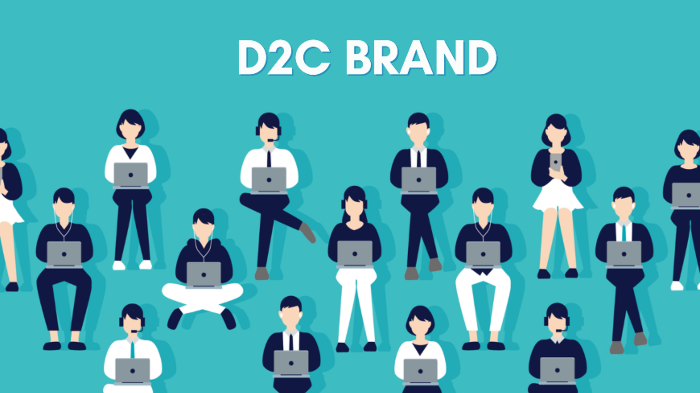
By definition, the term D2C brand refers to manufacturing businesses that manufacture, develop products/services, and distribute them directly to their consumers.
The product is always sent directly to the consumer during the sale process without third parties like traditional distributors. With most direct-to-consumer brands at present, products are sold on digital channel platforms such as social networks, marketplace, or enterprise e-commerce sites.
As a result, selling directly to customers has become much easier thanks to eCommerce. Third parties, for example, are no longer required once customers can purchase a product on social media using their smartphone.
The D2C brand’s e-commerce strategy focuses on maintaining the relationship with the loyal customer base. Simultaneously, direct-to-consumer brands also build links with potential customers interested in their products through multiple channels like social media or websites.
However, most famous D2C brands do not have marketing strengths, so partnering with third parties such as online retailers, influencers, or the marketplace effectively can promote the brand name.
CHECK OUT this article about D2C eCommerce HERE!
Top Most Successful D2C Brands
With the appearance of social networks and various media channels available for marketing in recent decades such as Tiktok, Instagram, and YouTube, there has been a surge in the amount of successful D2C brands, especially those who made massive investments in multi-channel marketing.
Even in the Covid-19 situation, many brands still make it through. Overall, D2C businesses maintain a constant growth of 19.2% a year.
Below are the biggest D2C brands for examples:
1. Bombas
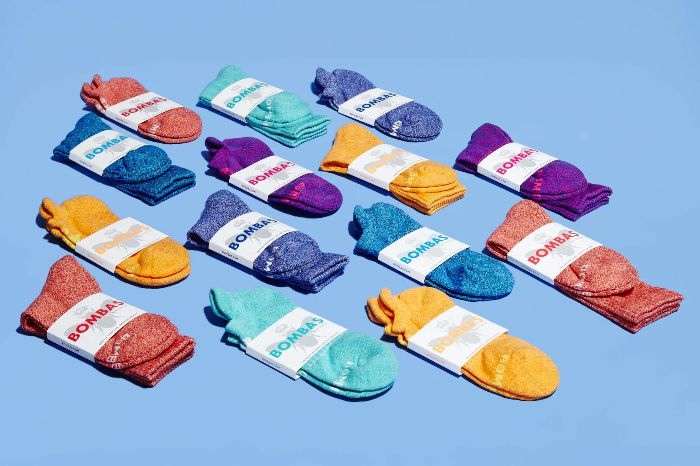
Bombas is the prime example of a D2C startup that dares to improve the product’s quality to the top, price them multiple times higher than the usual price and still have a success story to be told. In 2018, Bombas’ gross profit was over $100M.
2. MVMT
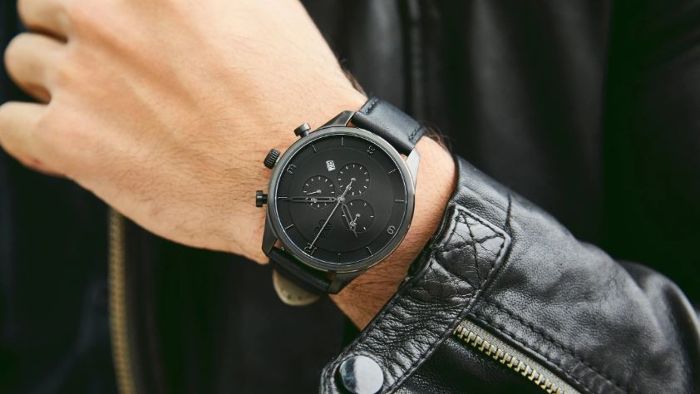
MVMT is a fashion brand that focuses on selling quartz watches, sunglasses and other men’s accessories. If you simply want stylish, vintage minimalist watches at an affordable price, MVMT is a viable choice.
ALSO, CHECK OUT other successful B2M brands in our list!
3. Black Milk
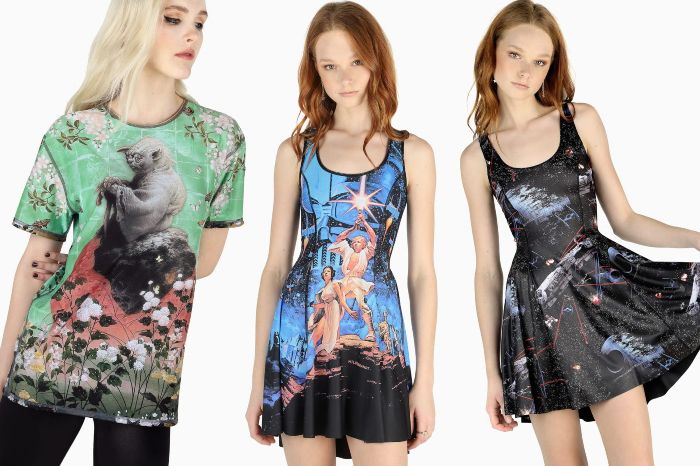
Black Milk manufactures original items of clothing that look very standout and unique. With the help of only direct marketing, mostly word-of-mouth initially, Black Milk Clothing is now a multi-million dollar company after five years of pursuit.
4. Dirty Lemon

Next on our D2C brands list is Dirty Lemon – a firm produces various fitness and flavor drinks, which offer many health benefits: wrinkles reduction, stress relief, digestion enhancement, etc. Instead of marketing on all channels, Dirty Lemon focuses on text box messages at first, then offline stores later.
5. Quip
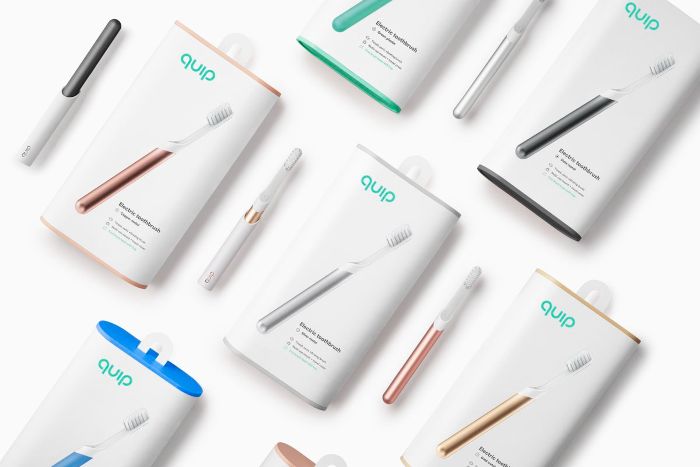
Quip sells oral products such as electric brushes, refillable floss, dental gum and more for your whole family. The company starts small with a subscription plan of 5$ per 3 months for battery, floss spool refills, and toothpaste.
6. Care/off
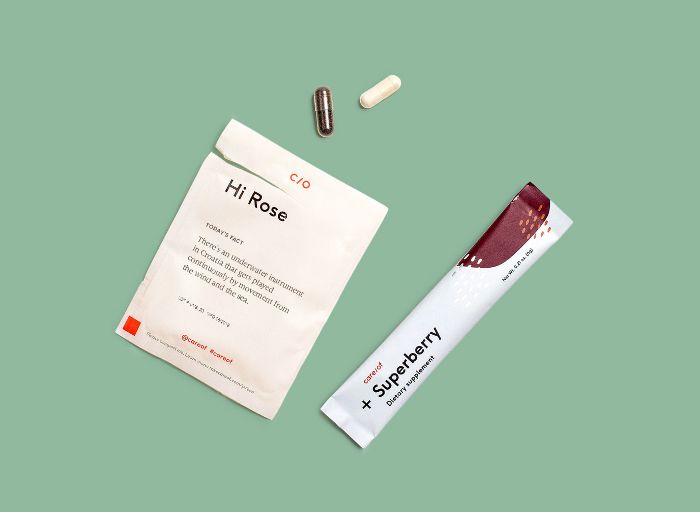
Care/off begins to make personalized vitamins easier to access for everyone via online quizzes and mobile applications. The company revamped the vitamin buying experience and turned it into a seamless digital journey with detailed explanations and a visual-pleasing display for customers.
By 2019, Care/off’s total value was around $156M. One year later, the company expanded into the beauty niche with various products.
7. Brooklinen
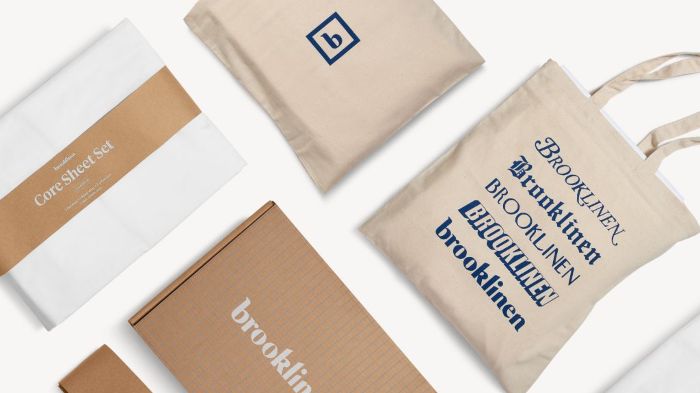
By cutting off the middleman, Brooklinen sheets decreased their five-star sheets from over $800 to only $99. It’s an excellent trade-off that bypasses wholesaling and distributors’ costs, making their products approachable for casual consumers.
Five years after its launch, Brooklinen’s revenue was over $100M.
KNOW MORE about other sale models or eCommerce HERE.
Wrapping Up
In a nutshell, D2C Brands are on a rapid ascent nowadays. These kinds of digital brands are experts at lowering costs and attracting customers quickly. They are also thriving as “brands” in the traditional sense by identifying modern consumers’ unmet needs.
Moreover, the development of the internet and social media also paved the way for them to sell and raise their brand awareness, giving direct-to-consumer retail a massive kickstart.
If you are more interested in B2B eCommerce, let’s check out BSS Commerce knowledge-base hub – where you can find tons of interesting articles about eCommerce.




